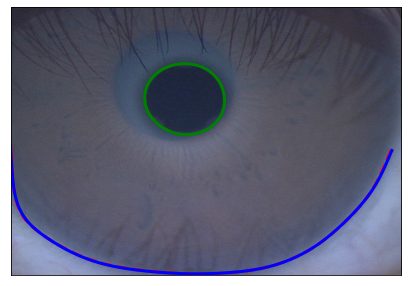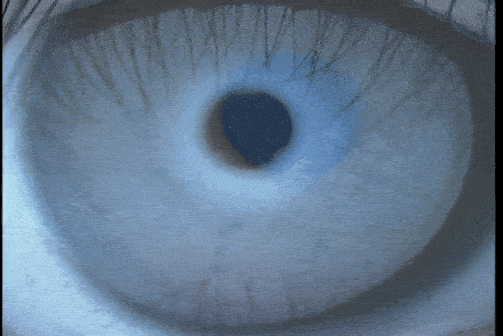Abstract
Dry Eye Disease (DED) is one of the most common ocular diseases: over five percent of US adults suffer from DED [4]. Tear film instability is a known factor for DED, and is thought to be regulated in large part by the thin lipid layer that covers and stabilizes the tear film. In order to aid eye related disease diagnosis, this work proposes a novel paradigm in using computer vision techniques to numerically analyze the tear film lipid layer (TFLL) spread. Eleven videos of the tear film lipid layer spread are collected with a micro-interferometer and a subset are annotated. A tracking algorithm relying on various pillar computer vision techniques is developed.
Blink Detection

Video Stabilization

Iris Segmentation

Lipid Layer Visual Enhancement

Optical Flow
Resources
Citation
@inproceedings{
kothapalli_lipidlayer,
title={Tracking the Dynamics of the Tear Film Lipid Layer},
author={Tejasvi Kothapalli and Charlie Shou
and Jennifer Ding and Peter Wang
and Tatyana Svitova and Andrew D. Graham
and Stella Yu and Meng Lin},
year={2022},
booktitle={NeurIPS}
}
Acknowlegements
This work was supported by R21EY033881 (Lin/Yu), UCB-CRC Research Fund 51194 (Lin) and Roberta Smith Research Fund 13681 (Lin).


